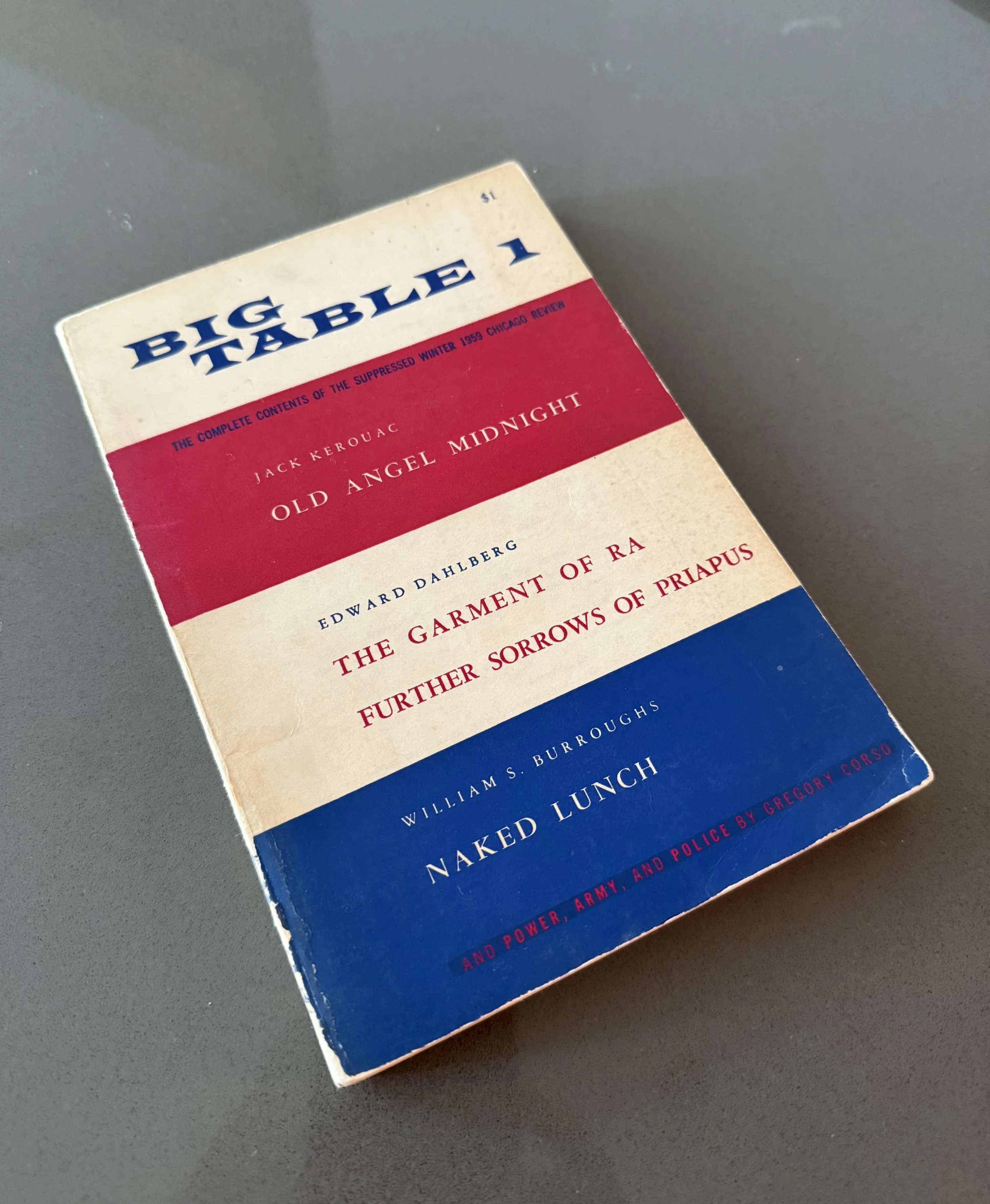Mary Campbell
Big Table 1 (the complete contents of the suppressed Winter 1959 Chicago Review) sits among my modest collection of vintage books. The covers of Big Table 1 contain not only some of the Beat Generation’s most recognized work, but a drama of defiance against censorship. Among the story’s surprising stars is Judge Julius J. Hoffman. Yeah, Julius Hoffman of Chicago 7 notoriety.
The story of Big Table 1 started with some bad press about the contents of an edition of the University of Chicago’s literary journal Chicago Review—namely episodes from William S. Burroughs’ novel Naked Lunch and Jack Kerouac’s “Old Angel Midnight.” This Chicago Review issue with Burroughs’ tale told by a junkie proved too hot for the academic establishment on the Midway. What followed was a sorry plot of censorship and all the attending parts played among the university ranks: back-biting, backpedaling, deceit, ass-covering, and ass-kissing. The university cancelled publication of the edition.
But that wasn’t the end of it.
Most of the Review’s editorial staff quit in protest and took the goods with them. They would publish the work independently. Big Table 1 was born. The insurgent editors’ mission to get Big Table 1 to readers, however, hit a hurdle when the United States Post Office impounded all copies on obscenity charges.
The battle—Big Table, Inc. v. Carl A. Schroeder, United States Postmaster for Chicago, Illinois—played out in court. Hoffman’s court. In 1960, Hoffman ruled against the Post Office, and thus Big Table 1 was allowed to mail. His comments present an astonishing venture into literary interpretation, especially in light of the Chicago 7 case just nine years later. About Naked Lunch, Hoffman surmised its intent was “to shock the contemporary society in order to perhaps better point out its flaws and weaknesses.” He deemed it serious literature.
Big Table 1 serves as a reminder that anyone can stand up to powerful organizations. I hold my copy in recognition of the ironic turns of history and with reverence for the courage of former Review editor and Big Table co-founder Irving Rosenthal and Big Table editor and Chicago poet Paul Carroll who both championed literary freedom.
The story of Big Table 1 was 65 years ago. The story of Big Table 1 is now.
It’s all there on the front cover in RED, WHITE, and BLUE.
